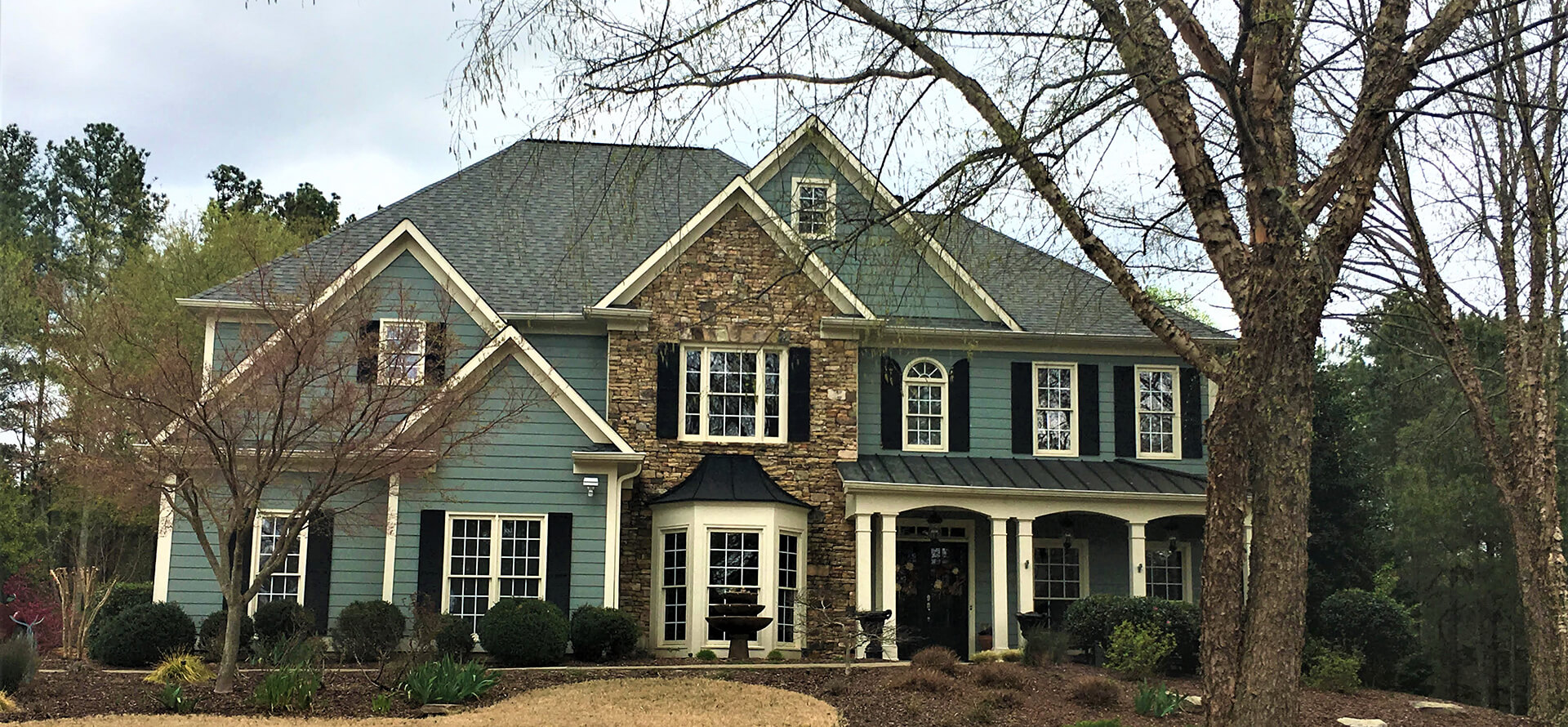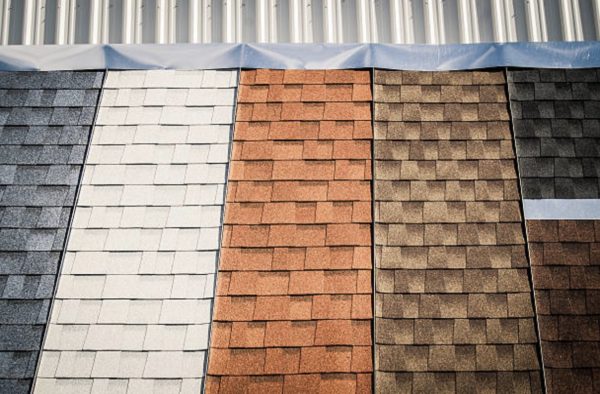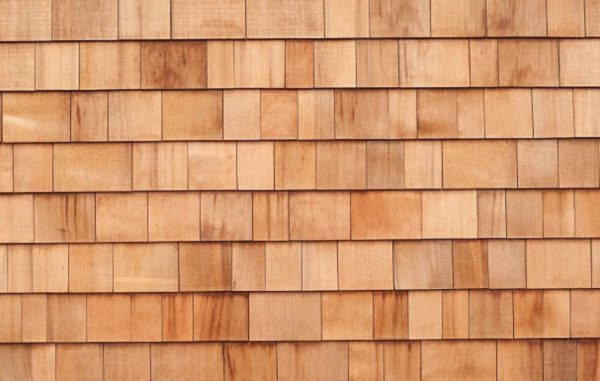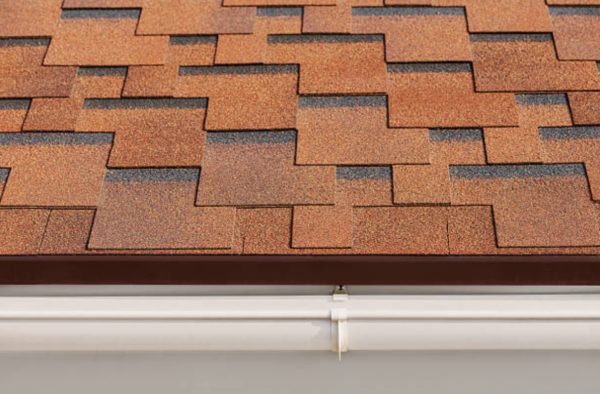We immediately understood Mr. Larry when he expressed his frustration about his new project. “Building a new house is exciting, but wait until you choose which roofing shingles to install!”
True enough, choosing among the different types of roof shingles is an intimidating task. You need to consider not just the design, but also the price, performance in various climates, and average lifespan. The roof shingle you pick can have a huge impact on your quality of life.
Mr. Smith’s concern has prompted us to write this guide. When it’s time to undergo a home renovation, make sure you don’t skip the information here.
5 Different Types of Roof Shingles
1. Asphalt Shingles
This roofing shingle material is by far the most popular choice in many American homes. First and foremost, asphalt shingles come in a wide variety of colors and textures to match the design of a house. Take, for example, the shingle manufacturer we use – Owens Corning. Their asphalt shingle colors range from Aged Copper to Shasta White.
Aside from variety and attractiveness, people prefer asphalt roofs because they’re affordable. As a matter of fact, you can pay as little as $2,000 for asphalt shingles on a single-story house.
If you’re after durability, asphalt roofing can withstand strong winds. We install Owens Corning shingles with 130 MPH wind resistance. When it comes to environmental-friendliness, these roofing materials can be recycled into asphalt pavement.
The downside with asphalt shingles is that their protective granules tend to dislodge and decay with severe weather. Homeowners who plan to live in the same home for over 20 years should maintain their asphalt roofing. This can be done with the help of a licensed contractor.
2. Wood Shingles
When we speak of wood shingles, we refer to cedar wood. Cedar wood possesses a lot of superb qualities that make homeowners love them. Perhaps the biggest advantage is that cedar wood has a natural, timeless, and classic appearance. Individuals who’d love a cottage-style house plan won’t be able to ignore the beauty wood shingles bring.
Compared to metal roofs, wood shingles hold an advantage in that they don’t rust. Rust is a typical problem in rainy season. Talking about longevity, wood shingles are known to last 10 years longer than asphalt roofs. Proper maintenance ensures a lifespan of 50 years.
Despite their beauty and lifespan, wood shingles come with disadvantages. Since they’re basically wood, termites and other wood-boring insects will likely feast on them. Know that wood shingles require chemical treatments and coatings to keep them beautiful and durable.
3. Solar Shingles

The previous types of roofs we discussed won’t be able to help you save as much energy than solar shingles. Solar shingles are new and they’re a smart long-term investment.
Introducing solar energy into your home, they lower your energy costs for up to 60%. For those who’d like to save the environment, solar shingles are the way to go. They reduce your carbon footprint.
Please take note that solar shingles differ from solar panels. The shingles version are meant for homeowners who want to maintain the look of a conventional shingled roof. They integrate into an existing asphalt roofing. They don’t stand out and look more natural. Installing them won’t require you to tackle a complete tear-off.
Do solar shingles carry disadvantages? As with all types of roof shingles, yes they have some drawbacks too. The materials and labor costs are expensive – although one should consider long-term savings potential. Also, hail and strong winds easily damage these roofing types. Think about the effects of bad weather on your roof.
4. Copper Shingles
Surprised? Yes – copper roofing is real. Homeowners who installed copper shingles attest that they’re the most beautiful types of roof shingles. This claim is easy to justify, as copper becomes increasingly attractive with age. A patina layer develops naturally on the surface of copper, giving it a green hue. Imagine the color of The Statue of Liberty.
Disney in Florida tested copper shingles and was surprised by their extreme durability. These materials withstood wind speeds of 180 MPH. Being a metal type of roofing, copper resists strong forces – fire and hail.
In terms of energy-efficiency, copper shingles cool down indoor temperatures by reflecting back heat. You’ll be able to decrease energy costs.
A huge drawback with copper shingles is that they don’t filter out noise. Metal amplifies the sound of rainwater on your roof. You would rather go for asphalt shingles if you prefer a more silent roofing.
5. Fiberglass Shingles
Fiberglass shingles are types of roof shingles that are often compared to (organic) asphalt. They also contain some asphalt but only a small amount of it. Because these materials are not organic, they’re less likely to catch fire. Fiberglass costs cheaper and weigh less.
When it comes to life expectancy, low-end versions last about 20 years while high-end ones last up to 50 years. They absorb less moisture. About designs and colors, you’ll also find a ton of options. There aren’t problems in terms of choices to match your home design.
On the downside, fiberglass shingles are less durable than other types of roof shingles. You’ll need to get yearly inspections from professional roofers.
A Roof Is as Good as Its Installer
So there you have it – 5 types of roof shingles and their pros and cons. As you can see, there is no such thing as a perfect roofing material. Whether a roof suits you or not depends on a combination of factors. Such factors include upfront costs, color, lifespan, environmental-friendliness, and warranty.
While all of these things matter, never ignore the value of hiring a reliable roofing contractor. A good roofer installs your roofing shingles based on the manufacturer’s standards. Even if you get a good deal on your roof, proper handling and installation techniques ensure that it will last many years.
Have you decided which shingles to install? If not, our team at Silver Leaf Contracting LLC will be here to offer you more advice. Get a free quote now. Contact us at 330-680-5987 or 330-313-0620.




















